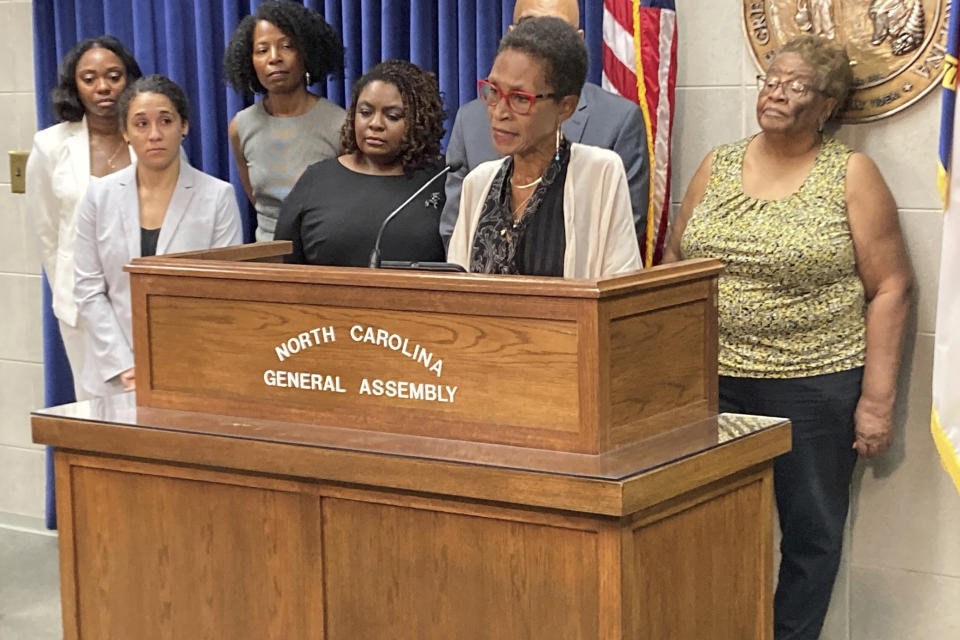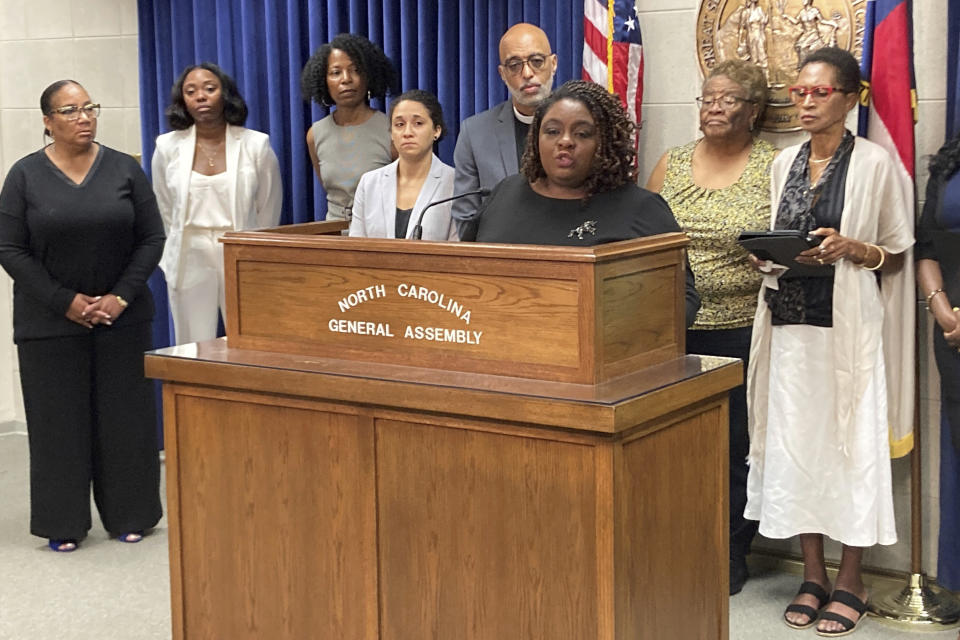Civil rights advocates defend a North Carolina court justice suing over a probe for speaking out
RALEIGH, N.C. (AP) — Civil rights advocates and Democratic state legislators defended and praised Wednesday a state Supreme Court justice for suing this week to block a state ethics panel from investigating her public comments that she says are protected by the First Amendment.
Leaders of the North Carolina Black Alliance, Emancipate NC and a minister spoke at a Legislative Building news conference in support of Anita Earls, who is the only Black woman on the seven-member court. They said that officials were trying to unfairly silence Earls, a Democrat, because she was addressing important topics on race and gender.
“In her fight for justice for all people, she had the audacity to speak out about racism and sexism in the North Carolina judicial system," said Rep. Renée Price, an Orange County Democrat and Alliance board member.
Earls filed her unusual federal lawsuit on Tuesday against the North Carolina Judicial Standards Commission, which told her earlier this month that an investigation into whether she violated the state's judicial conduct code — then dismissed — was being reopened in light of a media interview released in June.
In the interview Earls discussed the Supreme Court’s record related to diversity, alleging “implicit bias” against minorities in the hiring of clerks and witnessing what she considered harsh interaction initiated by court colleagues against female attorneys before the court. Republicans — four men and one woman — hold a 5-2 seat advantage on the court.
A letter sent by a commission staff attorney to Earls pointed to a portion of the Code of Judicial Conduct that a judge should conduct herself “at all times in a manner that promotes public confidence in the integrity and impartiality of the judiciary.”
But Earls' lawsuit said the code permits judges to speak about the “legal, or governmental system, or the administration of justice,” so that the commission should be prevented from investigating further.
Potential commission punishments range from words of caution to recommendations of suspension or removal from office.
The commission's members are chosen by the Supreme Court chief justice, North Carolina State Bar Council, the governor and legislative leaders. Six of the 14 members are judges.
The panel's executive director declined to comment on the litigation, saying the nonpartisan commission can't comment on pending investigations.
Paul Newby, the Republican chief justice since 2021, doesn’t have a comment at this time on the content of Earls' interview, a state courts spokesperson said Wednesday.
Dawn Blagrove, Emancipate NC's executive director and an attorney, said the unjust investigations serve as examples of the “unrelenting trauma and hostility that Black women lawyers have to face every single day in North Carolina just to do our jobs.”
Marcus Bass, the North Carolina Black Alliance's deputy director, said news conference participants would meet with attorneys in the state, urge legislative leaders to examine diversity within the judicial branch and “create a safe space for judicial officials to share their grievances of harm.” Another speaker expressed concern about a provision in the Senate version of the budget that would give GOP lawmakers more commission positions they would appoint.



